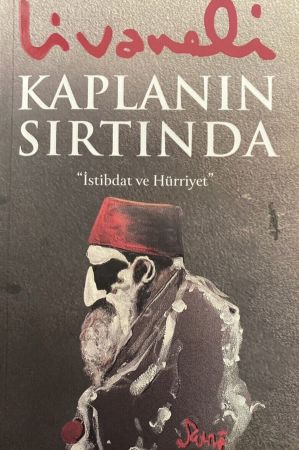A painful look into the dark past - Zülfü Livaneli
- Written by Portal Editor
The Turkish Nobel Prize winner Orhan Pamuk is known to many people in Germany who are interested in literature. No question.
His compatriot Zülfü Livaneli is far less well known in this country. Far wrong, especially as the Nobel Prize winner himself states: "Livaneli is an indispensable authority on the cultural and political scene in Turkey." This positive assessment can also be expressed in other ways: Livaneli is a dazzling figure in the Turkish cultural landscape! The emphasis is on "culture" because Livaneli, born in 1946, is versatile.
Member of the traditional "Republican People's Party"

So today Livaneli enjoys a high reputation in Turkey across the board. But that was not always so. Livaneli has also seen other times. Times when his music was banned. Times when he could only compose film music under a pseudonym. Times when he could no longer be sure of his life and had to go into exile in Sweden for a few years. Many of his nationalist-minded compatriots would gladly exile him even today! Because Livaneli has - once again - not cared about social taboos and chose a topic for his new novel that causes a sensation. A tragedy from Turkey's recent past, in which Germany, England and Russia were also involved. Livaneli sets the story in the present and repeatedly dives into the unresolved past.
In the present, two characters are the focus of the novel: On the one hand, the young Maya, single mother of a 14-year-old son and, as an employee of the University of Istanbul, responsible for looking after foreign guests. On the other hand, Professor Maximilian Wagner, who has travelled from the USA to give a lecture, is in the care of Maya. Maya quickly realizes that the 87-year-old man with German roots is overcome by a deep sadness when she takes him to certain places in Istanbul. It turns out that both the Turkish and the Russian secret service are following the two at every turn. The elderly professor is keeping a secret that he tells the young woman one long night.
Refuge from Hitler's henchmen on the Bosphorus
Livaneli did a lot of research for his story. It is his merit that, in addition to the goiter tragedy, he also gives an insight into the world of German-Jewish emigrants, the many professors, politicians and artists who lived in safe Turkish exile until the end of National Socialism. Among them were the later Governing Mayor of Berlin, Ernst Reuter, the lawyer Ernst Hirsch and the sculptor Rudolf Belling.
"Serenade for Nadja" is a very successful, an important book
"Serenade for Nadja" is a very successful, an important book. Only with a small flaw that is probably due to Livaneli's overzealousness: He packs a lot of thematic content into the story and occasionally has an extremely enlightening gesture, as if he didn't trust his characters enough. But he is happy to forgive this small weakness, because after all he has given us a moving piece of literature that is exciting for a long time and shed light on a dark episode of Turkey's past that has so far been hushed up.
Nevfel Cumart
Zülfü Livaneli: Serenade for Nadja. Novel. Klett-Cotta Verlag; Stuttgart. 336 pages, 21.95 euros.
Please read as well:
